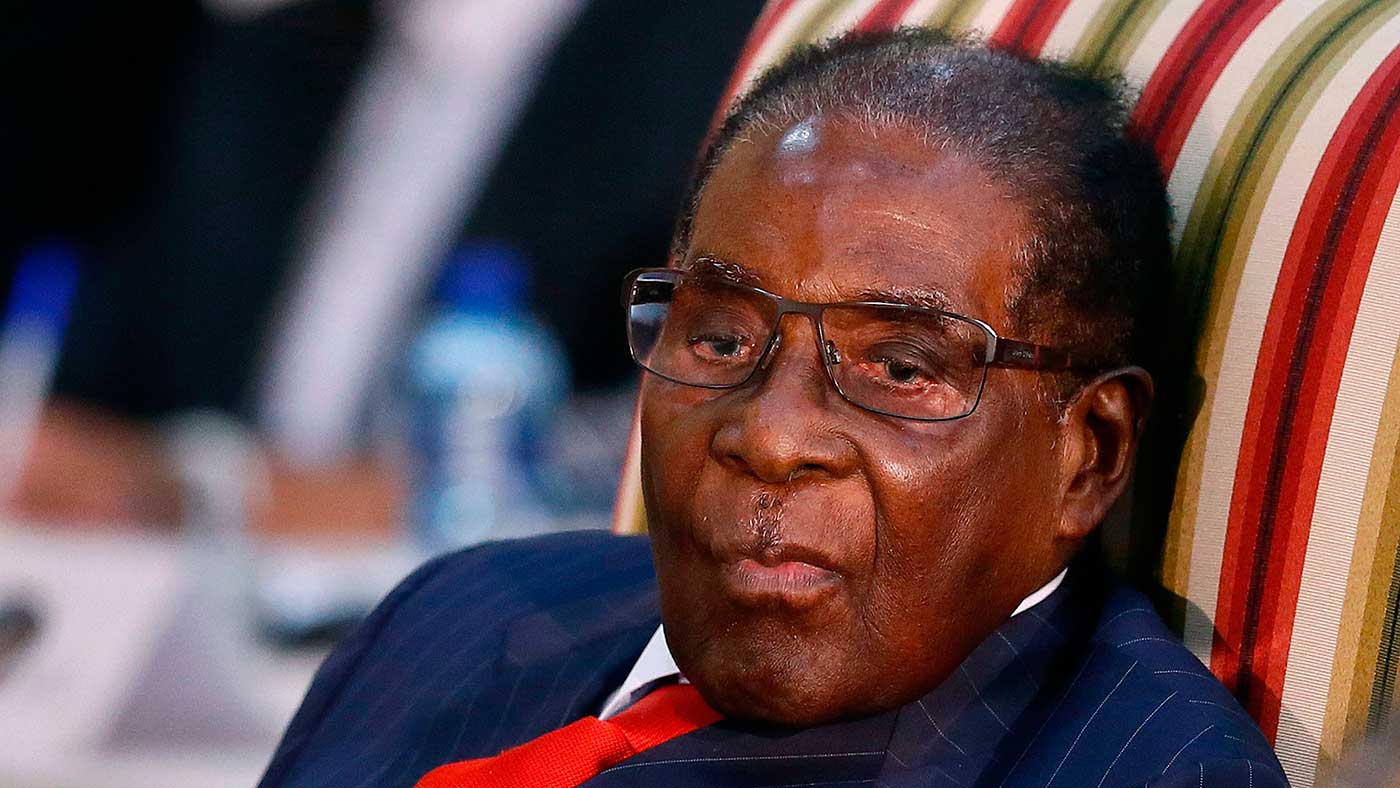Robert Mugabe stripped of ‘goodwill ambassador’ post
The Zimbabwean leader had been appointed by the World Health Organisation last week

A free daily email with the biggest news stories of the day – and the best features from TheWeek.com
You are now subscribed
Your newsletter sign-up was successful
The World Health Organization has cancelled the appointment of Zimbabwean President Robert Mugabe as a goodwill ambassador, following international outcry at the decision.
Mugabe had been appointed by WHO director general Tedros Adhanom Ghebreyesus during a meeting in Uruguay last week.
“At the time, Tedros praised Zimbabwe as ‘a country that places universal health coverage and health promotion at the centre of its policies to provide health care to all’,” the ABC reports.
The Week
Escape your echo chamber. Get the facts behind the news, plus analysis from multiple perspectives.

Sign up for The Week's Free Newsletters
From our morning news briefing to a weekly Good News Newsletter, get the best of The Week delivered directly to your inbox.
From our morning news briefing to a weekly Good News Newsletter, get the best of The Week delivered directly to your inbox.
Governments, donors and human rights groups expressed outrage, arguing that Zimbabwe’s health care system had crumbled in recent years.
“Staff often go without pay, medicines are in short supply, and Mugabe, who has outlived the average life expectancy in his country by three decades, travels abroad for medical treatment,” the BBC says.
Several former and current WHO staff said they were “appalled” by the appointment, and many commentators suggested that the decision was politically influenced.
“Mugabe was head of the African Union when the bloc endorsed Tedros - a former health and foreign minister of Ethiopia - over other African candidates for the top post, without any real regional contest,” The Guardian reports.
A free daily email with the biggest news stories of the day – and the best features from TheWeek.com
-
 What to know before filing your own taxes for the first time
What to know before filing your own taxes for the first timethe explainer Tackle this financial milestone with confidence
-
 The biggest box office flops of the 21st century
The biggest box office flops of the 21st centuryin depth Unnecessary remakes and turgid, expensive CGI-fests highlight this list of these most notorious box-office losers
-
 The 10 most infamous abductions in modern history
The 10 most infamous abductions in modern historyin depth The taking of Savannah Guthrie’s mother, Nancy, is the latest in a long string of high-profile kidnappings
-
 Epstein files topple law CEO, roil UK government
Epstein files topple law CEO, roil UK governmentSpeed Read Peter Mandelson, Britain’s former ambassador to the US, is caught up in the scandal
-
 Iran and US prepare to meet after skirmishes
Iran and US prepare to meet after skirmishesSpeed Read The incident comes amid heightened tensions in the Middle East
-
 Israel retrieves final hostage’s body from Gaza
Israel retrieves final hostage’s body from GazaSpeed Read The 24-year-old police officer was killed during the initial Hamas attack
-
 China’s Xi targets top general in growing purge
China’s Xi targets top general in growing purgeSpeed Read Zhang Youxia is being investigated over ‘grave violations’ of the law
-
 Panama and Canada are negotiating over a crucial copper mine
Panama and Canada are negotiating over a crucial copper mineIn the Spotlight Panama is set to make a final decision on the mine this summer
-
 Why Greenland’s natural resources are nearly impossible to mine
Why Greenland’s natural resources are nearly impossible to mineThe Explainer The country’s natural landscape makes the task extremely difficult
-
 Iran cuts internet as protests escalate
Iran cuts internet as protests escalateSpeed Reada Government buildings across the country have been set on fire
-
 US nabs ‘shadow’ tanker claimed by Russia
US nabs ‘shadow’ tanker claimed by RussiaSpeed Read The ship was one of two vessels seized by the US military